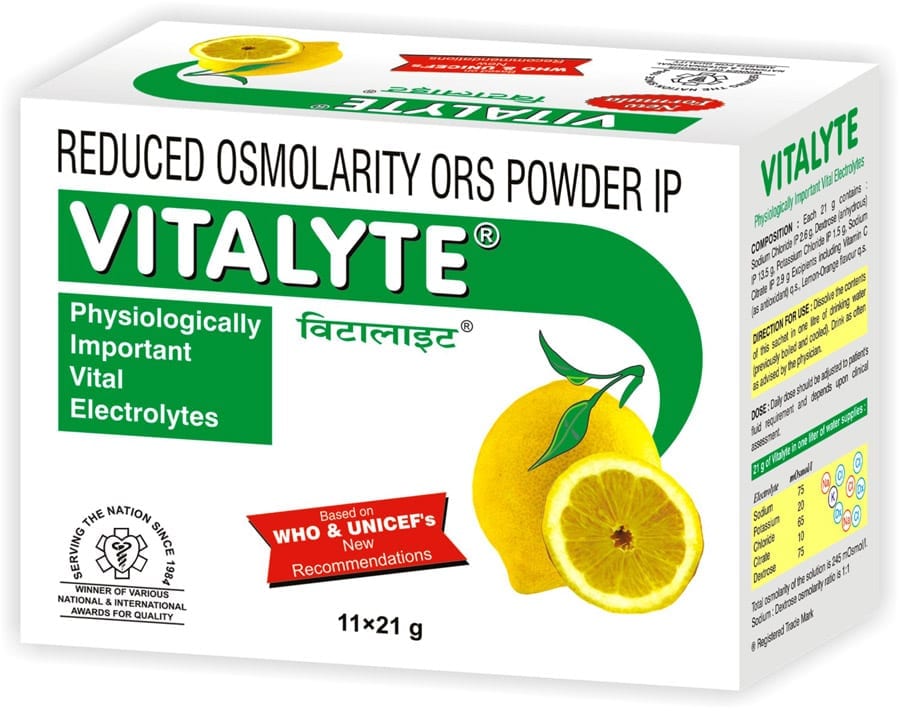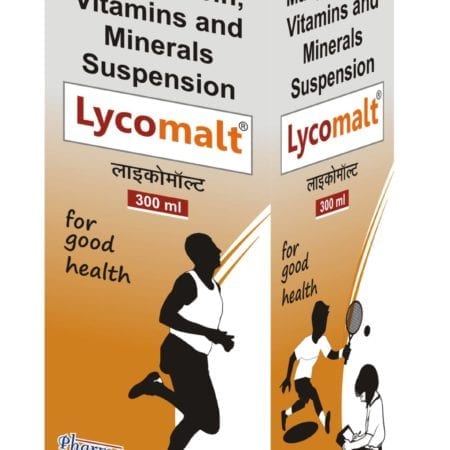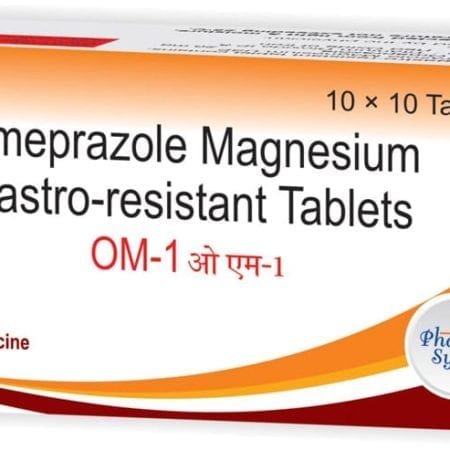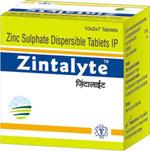Vitalyte ORS | Electrolyte Glucose Powder
» Physiologically Important Vital Electrolytes
» Each 21 g contains :
» Sodium Chloride IP 2.6 g
» Potassium Chloride IP 1.5 g
» Sodium Citrate IP 2.9 g
» Dextrose (anhydrous) IP 13.5 g
Description
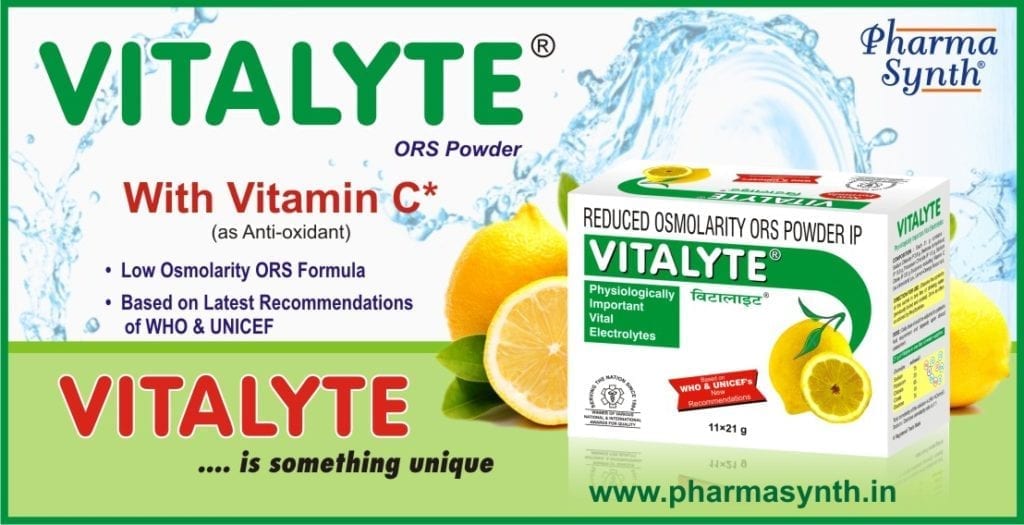
ORS electrolyte glucose drink with vitamin C (Lemon-orange flavor).
| Composition: |
Each sachet of Vitalyte-ORS contains:
Sodium Chloride IP: 2.6 g
Potassium Chloride IP: 1.5 g
Sodium Citrate IP: 2.9 g
Dextrose (anhydrous) IP: 13.5 g
| ATC classification: |
Electrolytes with carbohydrates
| Description: |
Vitalyte oral rehydration salts are formulated based on the latest recommendations by WHO and UNICEF. The conventional ORS had 90 mEq/l of sodium and 111 mEq/l of glucose with a total osmolarity of 311 mOsm/l. Though it was an effective treatment to restore hydration with no adverse events, the formula was not effective enough to reduce the stool output and the duration of diarrhea. The improved ORS formula launched by UNICEF is as safe as the standard ORS with added efficacy in reducing the stool output, duration of diarrhea and also reduced incidences of vomiting by the patients. The improved formula of ORS is of low osmolarity compared to the standard ORS. It has 75 mEq/l of sodium, 75 mmol/l of glucose and a total osmolarity of 245 mOsm/l. The low osmolarity ORS has shown efficacy not only in treating but also in preventing dehydration in children from all types of diarrhea with reduced need for IV supplementation. It has also been proven to be safe and effective for use in children with cholera.
The improved low osmolarity ORS formulation reduces the need for hospitalization of children for intravenous fluid administration. With a reduced need for IV supplementation, it results in fewer secondary infections and also lowers the health costs.
| Pharmacological action: |
Concentration in mOsmol/litre
Sodium 75
Potassium 20
Chloride 65
Citrate 10
Dextrose 75
Total Osmolarity 245
Body gets dehydrated when there is excessive loss of salts and fluids either due to diarrhea and vomiting that occurs as a result of infection by certain microbes or when the body gets exhausted due to excessive heat. In infections like cholera, the toxins affect the intestinal cells leading to the secretion of water and salts into the lumen. When oral rehydration solutions are administered to the dehydrated patients the electrolyte balance is restored by the following mechanism: a) ORS has slightly less osmolarity than plasma hence the fluids enter the intestinal cells due to osmotic pressure. This also prevents osmotic diarrhea.
- b) Vitalyte ORS has a balanced formula of salts, glucose, and electrolytes which act at the transporter pumps namely the sodium-glucose co-transporter present in the intestinal cells. The sodium-glucose transporter (SGLT1) in intestine mediates the sodium-dependent glucose uptake in the ration of 1:1 from the administered oral rehydration solutions. Transport of glucose causes solvent drag; it takes water molecules along with it across the transporter pump. Also, the Osmolarity differences created reabsorbs water out of the intestinal gut into the body thus helps in reversing electrolyte imbalances. Potassium salts present in Vitalyte ORS restore the potassium levels of plasma. Citrate salts present in ORS act as alkalinizing agent by countering the metabolic acidosis due to the dehydration.
| Indications: |
Vitalyte-ORS is indicated in dehydration states associated with diarrhea of varied etiologies.
It is also indicated for people who are not dehydrated and those who show signs and symptoms such as increased thirst, decreased urine output, dry mouth, fatigue, low urine volume with yellowish color compared to normal, headache, dry skin and dizziness which are indicative of mild to moderate dehydration.
| Dosage and Administration: |
Adults and children over 12 years of age: should drink at least 3 liters of Vitalyte ORS a day until they feel better with reduced diarrhea.
Adults are recommended to have 200 to 400 ml of oral rehydration solution for every loose motion.
Children are recommended to have 200ml for every loose motion.
Children 2 to 12 years of age: Dose has to be calculated based on body weight of the child and it must be administered by the doctor.
The usual dose is 50ml/kg of body weight and it has to be administered over first 5-6 hours. For the next 18-24 hours, the dose is calculated taking 100ml/kg of body weight.
Doctors are advised to adjust the dose depending on the patient’s response to the treatment and also based on thirst the patient feels.
Note: Not more than 100ml has to be administered in any 20 minutes period.
Infants: Vitalyte ORS has to be administered with care to infants.
If the infant is bottle fed then substitute feeds with an equivalent volume of reconstituted solution. After correcting the initial dehydration state normal feeding can be continued.
If an infant is breastfed then breastfeeding can be continued in between the ORS administrations.
Note: Infants with dehydration are to be treated under medical supervision.
In elderly patients, potassium levels are to be monitored.
Directions for use:
- Mix the contents of the Vitalyte ORS sachet in 1 liter of drinking water. In case of unavailability of safe drinking water, it is advisable to boil and cool the water before reconstitution.
- Take sips of the reconstituted solution or for every 5 minutes up to the time color and volume of urination becomes normal.
- Use within one hour of reconstitution, or within 24 hours if stored in a refrigerator.
- Do not boil the reconstituted solution.
| Contraindications: |
Vitalyte ORS is contraindicated in patients having the following conditions:
- Congestive heart failure, ischaemic cardiac disease, hypertension, oedematous sodium retaining conditions.
- Liver cirrhosis, renal failure, nephrotic syndrome
- Adrenocortical insufficiency
- Hyperkalaemia, hypocalcemia, hypophosphatemia, haemodilution
- Hyperosmolar states associated with oliguria or anuria
- Sepsis, trauma and hypoventilatory states
- Peripheral or pulmonary edema
- A continuous gastric fluid loss that leads to chloride depletion.
- Diabetes mellitus
- Dextrose malabsorption
- Thiamine deficiency
- Severe undernutrition
- Toxemia of pregnancy
- In severe cases of vomiting, diarrhea and dehydration that may require IV supplementation
- Patients undergoing treatment with NSAIDs, corticosteroids, carbenoxolone and diuretics known to produce hypochloraemic alkalosis.
| Side effects: |
The following adverse events are reported mostly after overdosage of Vitalyte ORS:
Vomiting, hypernatraemia, hyperkalaemia, metabolic alkalosis, oedema, nausea, abdominal cramps, diarrhea, flatulence, restlessness, headache, dizziness, sweating, weakness, fever, tachycardia, renal failure, respiratory arrest, muscular twitching, muscle hypertonicity, coma, convulsions, gastro-intestinal ulceration and raised blood pressure.
| Warnings and Precautions: |
General:
- Reconstitution of the contents in the sachet should be done only with drinking water. Follow the instructions and use the volume as directed.
- Reconstituted solution should not be boiled. Boil the water prior to reconstitution
- No other ingredients are to be added to the solution.
- Discard the solution within 24 hours of reconstitution. Do not store it in the refrigerator for future use.
- Vitalyte ORS treatment is not appropriate when IV supplementation has been indicated for the patients having severe dehydration or uncontrollable vomiting.
- For infants under 3 years of age with diarrhea seek immediate medical attention.
- In case of adults if symptoms persist even after 24-48 hours immediately consult your doctor.
Drug Interactions:
Sodium retaining drugs: Corticosteroids, carbenoxolone, NSAIDs
Concurrent use of Vitalyte ORS with other potassium containing drugs may precipitate hyperkalemia.
Diuretics: loop and thiazide diuretics that are known to cause hypochloraemic metabolic alkalosis
Pregnancy and lactation:
ORS is to be administered only when deemed necessary by the physician.
| References: |
New formula oral rehydration salts:
http://apps.who.int/medicinedocs/en/d/Js4950e/2.4.html
Low-osmolarity oral rehydration solution (ORS):
http://rehydrate.org/ors/low-osmolarity-ors.htm
http://rehydrate.org/ors/ort.htm
Disclaimer:
- Information provided above is for reference purpose only and has been compiled for use by healthcare practitioners. Please consult your physician to understand how the product affects you, its dosages, side-effects and further information.
- Remember, keep this and all other medicines out of the reach of children, never share your medicines with others, and use this medication only for the indications prescribed by your physician.
- Every effort has been made to ensure that the information provided by Pharma Synth Formulations Ltd. (‘PSFL’) is accurate, up-to-date, and complete, but no guarantee is made to that effect. PSFL does not endorse drugs, diagnose patients or recommend therapy and is an informational resource designed to assist licensed healthcare practitioners in caring for their patients and/or to serve consumers viewing this service as a supplement to, and not a substitute for, the expertise, skill, knowledge and judgment of healthcare practitioners. PSFL does not assume any responsibility for any aspect of healthcare administered with the aid of information provided. The information contained herein is not intended to cover all possible uses, directions, precautions, warnings, drug interactions, allergic reactions, or adverse effects. If you have questions about the drugs you are taking, check with your doctor, nurse or pharmacist.

